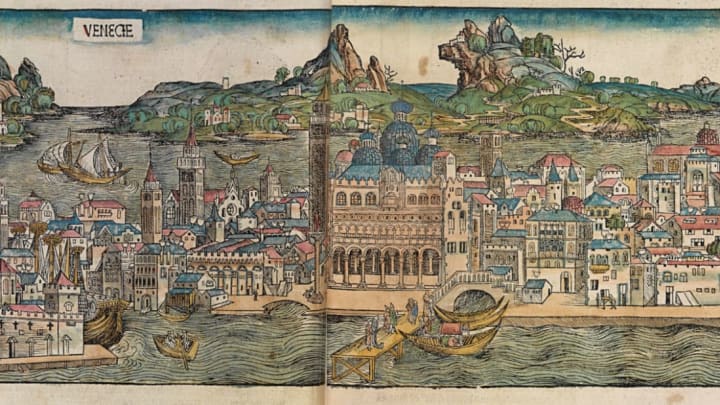They say history is written by the victors, but we have just as much, if not more, to learn from the losers. Now a new archival project aims to do just that, digitizing and linking more than a thousand years of handwritten artifacts from the lives of ordinary people.
The Venice Time Machine is the brainchild of computer scientist Frédéric Kaplan, director of the Digital Humanities Laboratory at the Swiss Federal Institute of Technology in Lausanne (EPFL). It was 2012 when Kaplan first visited Venice’s Santa Maria Gloriosa dei Frari. The medieval friary had been converted to historical archives, and its 300+ rooms were stuffed to the gills with stacks upon stacks of books, rolled maps, and yellowed, disintegrating documents. Kaplan’s mind raced.
"I felt completely overwhelmed," he told Nature. "Seeing what a thousand-year archive looks like, knowing that most of it was not available—I knew we needed to do it."
For assistance, he tapped his co-director Isabella di Lenardo, who said she was more than willing to help. "It was what I had been waiting for all my life."
Over the next few years, Kaplan, di Lenardo, and an army of other researchers and archivists hope to scan and digitize the archive’s walls and walls of historical information. Advancements in visual recognition software should make it possible to read and log the handwritten text of each piece of paper, which, in turn, should make it possible to create an immense, searchable database of financial records, death certificates, letters, maps, and more.
Joan Rosés is an economic historian at the London School of Economics and Political Science. He says records from the financially tumultuous city "could help change our understanding of how financial markets work." And having access to ordinary people’s papers, he says, could literally change the shape of history. "You can deduce a lot of stupid things if you only study successful, famous people—the only people that we know a lot about."
The project could be a game-changer for researchers of all kinds.
"We are in a state of electrified excitement about the possibilities," said Lorraine Daston of the Max Planck Institute for the History of Science in Berlin. "I am practically salivating."
[h/t Nature]
